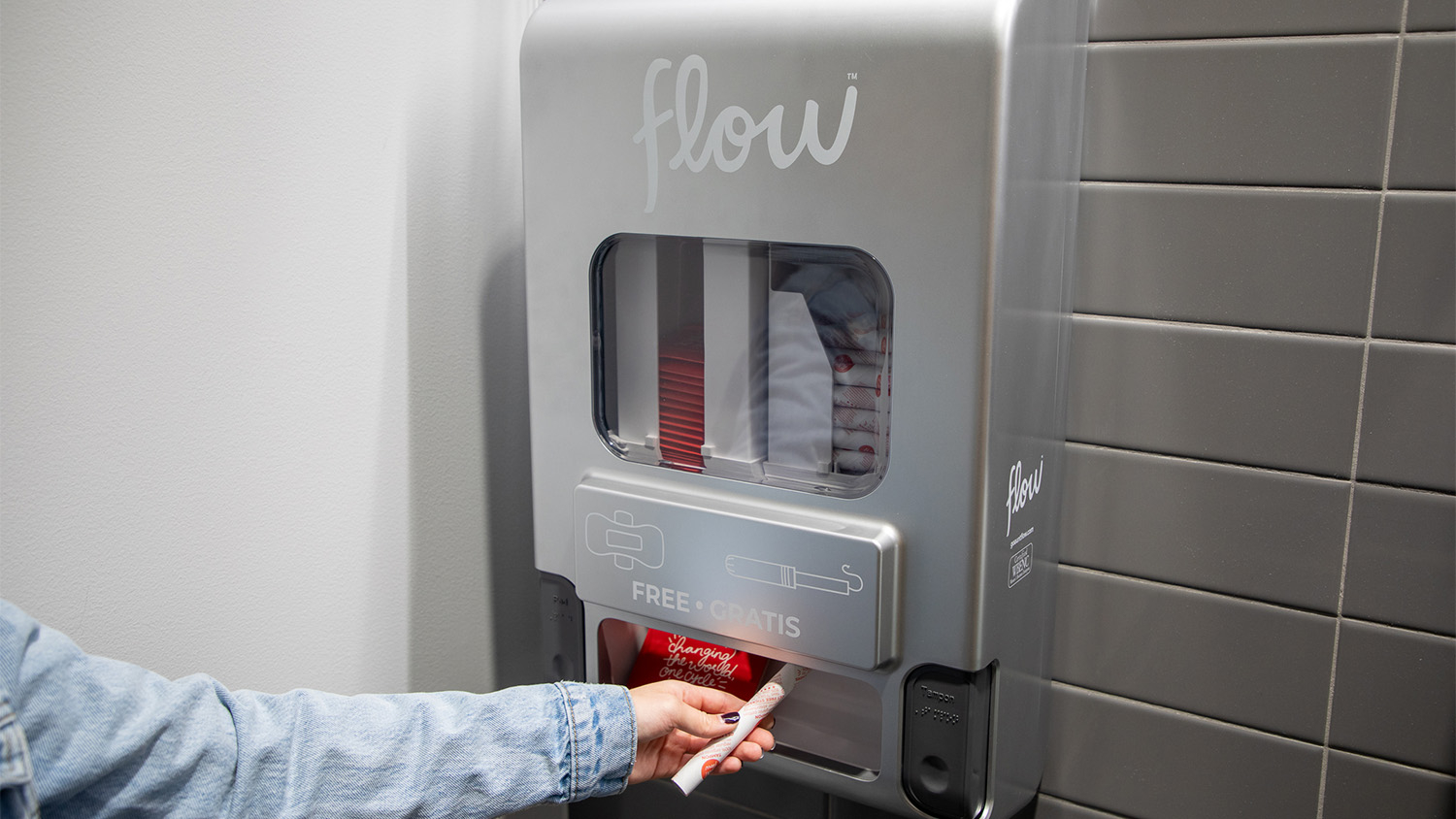Equity, Period.

As inflation and cost of living continue to rise, many NC State students — and employees — find themselves struggling to pay rent or buy groceries. Sometimes even menstrual hygiene products, like tampons and menstrual pads, get cut from monthly budgets to simply meet their most basic needs. That’s why NC State has added 125 free menstrual product dispensers in women’s and single-occupant, gender-neutral restrooms across Main and Centennial campuses as well as the College of Veterinary Medicine this fall.
The project is part of a yearlong study and pilot program organized by NC State and We Bleed Red, a student organization that works to end the stigma and educate the public on menstrual health. Layla Saliba (Psychology ’22) served as vice president and president for the organization, which launched a petition, had countless talks with administration and even presented the initiative to the faculty senate.
“My work was based on the needs of myself and the needs of my fellow students,” Saliba said. “I had classmates telling me that they would be late to class or miss an exam because they couldn’t find accessible menstrual products, and I knew something had to be done. Menstrual products are not covered by federal assistance programs like WIC or SNAP and are very rarely donated at food pantries or homeless shelters, so if you can’t afford them there aren’t many resources that can help.”
Saliba herself deals with an autoimmune condition called endometriosis which is known for painful periods. She is now a graduate student at Columbia University pursuing a master’s degree in social work. Ultimately, she hopes to help others with endometriosis by creating better policies for chronically ill and disabled people. She is also still advocating for menstrual equity, and recently submitted a proposal to the New York City Civic Engagement Commission for a trial run of free menstrual products in target branches of New York public libraries.
“While at NC State, it was very challenging to deal with endometriosis on top of being a full-time student, working and still being involved on campus, but I am very glad that I pushed through,” she said. “It wasn’t just me; I am very thankful for the other members of We Bleed Red such as Mia Connell, Erin Foote, Troi Davis and Deepa Bhatt, who helped support me and advance our mission.”
As part of the Menstrual Equity Initiative this spring, a survey was developed by Donna McGalliard, interim associate vice chancellor for the Division of Academic and Student Affairs; Melissa Green, former director of Student Leadership and Engagement; Layla Saliba, former president of We Bleed Red; and Doug Morton, associate vice chancellor for NC State Facilities. The survey was administered by DASA Assessment and received more than 750 responses.
In the survey, many respondents expressed their enthusiasm for the initiative:
Data from the survey was used to determine the locations and effectiveness of dispensers, types of products and other related topics. As a result, 125 dispensers were purchased and installed this fall in women’s and gender-neutral restrooms in academic and administrative buildings, libraries, residence halls, student centers, dining halls and the Wellness and Recreation Center. The dispenser manufacturer, Aunt Flow, provides tampon dispensers for schools and businesses nationwide. As part of its mission, the company prides itself on sustainability and philanthropy, and for every 10 products sold, Aunt Flow donates one to non-profit organizations.
The program will be assessed each academic year moving forward and could expand to even more restrooms on campus.
“The university is so pleased to be rolling out this important initiative in partnership with the We Bleed Red student organization,” said Donna McGalliard, interim associate vice chancellor for the Division of Academic and Student Affairs. “Our campus community benefits when we all come together for the support of the Pack.”
- Categories: